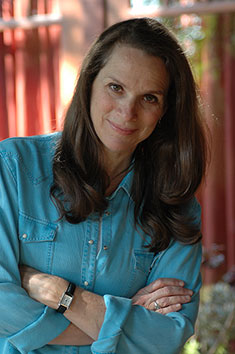"In no way," says Michael Gitlin, "were we trying to create or produce relapse in any way, shape or form." Says Keith Nuechterlein: "The simple idea that someone would accuse us of things like being unethical, and gee, trying to induce relapses and making all our patients do poorly--it just blew my mind."
Despite the findings of the federal report, the researchers show little sign of accepting responsibility for their patient-subjects' difficulties. They sit side by side in Gitlin's small, corner office on the second floor of a medical building at UCLA. Gitlin says he doesn't like the word "regret," because "it's a tricky one." But he does say he feels bad about "what happened globally." He is proud of his work, pleased that he managed to keep the study's hospitalization rate--the rate of extreme relapse--so low, at 10%. For his part, Nuechterlein dismisses the idea that there is a fundamental conflict in being a clinician and a researcher: "We designed and carried out the study, trying to keep the best clinical interests of the patient in mind and at the same time trying to learn as much as we could about the early period of the illness."
The two researchers offer a stark contrast in style and manner. A New Yorker and fast talker, Gitlin, with his frizzy mop of black hair and laconic delivery, exudes an imperious, if gentle, attitude; Nuechterlein's even-pitched voice has the flat-vowelled ring of the Midwest, his contact lenses giving his blue eyes a glassy, almost spacey look.
"You didn't expect to produce relapse?" I ask them.
"We expected relapses," says Gitlin, "because you can't work with schizophrenic patients without having relapses--on medications, off medications or in any other way. So, it is the nature of the beast to have relapses in schizophrenia. In fact, there are sizable relapse rates in the best studies of patients who remain on medications at any point along the way. So, no, we were not trying to create relapses."
They spend much of their time defending themselves now, in writings and talks. Nuechterlein and Gitlin speak calmly and cogently about their predicament. The researchers know that the public picture of them is that of mad scientists. From their standpoint, if there is a problem it is in the regulation system and they are merely fall guys. On their own behavior, they are adamant.
"Do I feel that patients were not adequately informed as to what the study entailed and what the potential risk and benefit was?" Gitlin asks. "No, I feel absolutely clear the patients were and their families were informed, both from the written documents as well as the much more voluminous oral discussions. I feel very genuinely that this is a very ethical, important research project."
Nuechterlein adds that there is no universal agreement as to how much should be written into an informed consent document versus how much is told verbally. "I wish now," he says, "we had tape recordings of the conversations where we provided this information." He says the subjects understood that relapse was part of the process of the disease and were well aware of what it entailed.
Both researchers sigh deeply when they are asked to offer specifics about the Aller and Lamadrid cases, citing patient confidentiality. They are, in essence, protecting the privacy of the same people making allegations against them. Even though UCLA was still keeping track of Tony Lamadrid, they say that his suicide shouldn't be blamed on the research protocols because it happened more than two years after his active participation in the study. In general, they defend their study as naturalistic, reflecting standard treatment. In the first phase, they were stabilizing patients on antipsychotic drugs as they watched for possible relapse; in the second, they withdrew drugs, as doctors or the patients themselves might, as they tried to avoid the terrible side-effects of the meds.
To interview them is to walk a semantic tightrope. They never intentionally caused severe relapses, they repeat. Rather, they allowed their patient-subjects to suffer milder psychotic exacerbations--a slight increase in paranoia, say. Nuechterlein now says he regrets using terms like "severe" in his published papers and he regrets that in the protocol descriptions he sometimes lumped together exacerbations (which he says would rate a 4 on a 1 to 7 scale) and relapses (which would rate a 6 or 7). They emphasize now that Gitlin, as the treating clinical psychiatrist, had the power to override his patients' involvement in the research if he thought they were too sick to continue. He might pull them, they claim, even if their symptoms weren't as bad as the protocol's withdrawal criteria.



